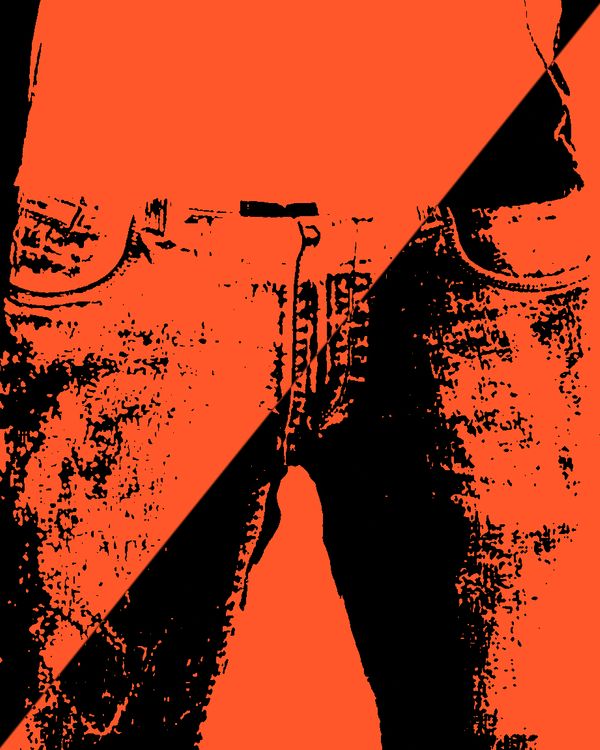
I like taking naps at the end of the day, when the sun is starting to set but my room is still so hot that I can’t be in there without sweating. I took a lot of naps this August and September. I would lie naked on top of the sheets, looking down at my body and out at the mountains turning pink, until I drifted off. Often, in the blurry space between being awake and asleep, I’d have this vision of the future:
I’m lying in my bed, in a different house but still California. I look down at something like a penis, twitching as it rests on my thigh. Still, this urge to say “something like a penis,” instead of just letting it be a penis. I put my right hand under it and lift it up to rest in my palm, bent slightly. The skin is soft and papery, it pulses. It’s a living creature. One I have to protect and tuck away. For a few seconds, I just watch it there in my hand, then place it back on my thigh.
A bee flies in through the open window, which is rare here now. It zips over to my bed, landing precariously close to this new part of me I’m holding, which seems so young. It is so young; it only just began existing outside my mind. My penis is younger than I am. It responds best to gentleness, to soft and muted touch. It’s precious to me, because it’s vulnerable and it’s mine. My loved ones know that I’ve chosen this protrusion so that I can open up, not be harder, even if that happens sometimes, too.
The wanting, for this new part of me, was a slow and quiet realization. A flicker of fantasy that grew into a need. And even when I needed it I felt like a freak, with a lot of doubt. But most doctors don’t tolerate ambivalence, and no insurance companies do. So I had to pretend to be a certain type of man to get this new part of me. A man missing something. A man who never wanted any holes. Men like this are on TV more and more; sometimes they’re governors, or senators, or action stars, or soldiers with a digital following. The public loves a soldier, a citizen who was once a little girl, who couldn’t help but be a man.
The process of acquiring this protrusion was different than it used to be before: They didn’t need to graft the skin off my thigh or my forearm. They took my cells and they grew it, a child without a heart or lungs or a brain. They grew it in a research lab in North Carolina. So I guess you could say my cock is my test-tube baby. They call the technology “regenerative medicine,” and they developed it for soldiers who injured their groins in combat. Of course, when the developers became aware of another consumer base, surgeons started marketing the process to men like me, men missing something. Insurance was required by law — not just state, but federal now — to help me pay, so long as I convinced them I was one of those men.
It took me almost a decade to get to a place where I could do this, and I still hate that I wanted it at all. This irrepressible need that grew over time. A regenerative desire. Like, as if the more I looked like a man, the more I woke up expecting to see something that wasn’t there. The more the absence preoccupied me.
The more people love me, the more I want to be loved; the more people praise me, the more I want to be praised; the more of a man I am, the more of a man I want to be.
*This article appears in the November 11, 2019, issue of New York Magazine. Subscribe Now!




